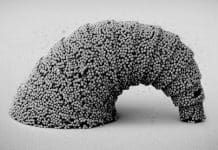The European Research Council (ERC) has announced the recipients of its highly competitive 2025 Starting Grants, awarding a total of €761 million to support 478 early-career researchers across Europe
These starting grants are designed to help future European scientists establish their own research teams and pursue ambitious projects in a wide range of scientific fields.
Funded under the EU’s Horizon Europe programme, this year’s starting grants show the EU’s commitment to fostering innovation and excellence in science and research. The selected projects encompass a diverse spectrum, ranging from the physical and life sciences to engineering, social sciences, and the humanities.
Diverse research across Europe
The grantees will conduct their research in 25 countries, including leading host nations such as Germany (99 grants), the UK (60), the Netherlands (44), and France (41). The researchers themselves come from 51 different nationalities, showing the global appeal and reach of the ERC’s support. Among the most represented nationalities are Germans (87 researchers), Italians (55), French (33), and nationals from the UK and Spain (32 each).
Examples of the awarded projects include exploring how plants defend themselves from excessive sunlight, uncovering the effects of ageing on human tissues, and creating more natural-feeling artificial touch technology. Other projects look into complex mental health issues such as adult ADHD, investigating whether it mirrors childhood patterns of the disorder.
Limited funding and intense competition
The competition for these starting grants is intense. The 2025 Starting Grant call received 3,928 proposals, a 13% increase compared to the previous year. However, only around 12% of applications were successful, showing the challenge of securing ERC funding despite the excellence of many submissions.
Each starting grant provides €1.5 million over a period of up to five years, with the potential for additional funding to cover significant research-related costs such as relocating from outside the EU, acquiring specialised equipment, or conducting large-scale experiments and fieldwork.
Gender balance and job creation
Gender representation among the grantees has remained relatively consistent, with 42% of this year’s winners being women. While slightly lower than the 44% recorded in 2024, this figure continues to reflect the ERC’s efforts to promote gender diversity in research leadership roles.
The starting grants are expected to generate massive employment opportunities, with an estimated 3,000 new research jobs created across the supported projects. These roles will help build dynamic research teams that can advance scientific knowledge and tackle some of the world’s most pressing challenges.
Switzerland’s participation
While the list of winners is currently provisional, some uncertainty remains for applicants based in Switzerland. The country is in the final stages of negotiations to join the Horizon Europe programme. Suppose the agreement is not finalised before the grant contracts are signed. In that case, Swiss-based researchers may need to relocate their projects to eligible institutions within the EU or associated countries to qualify for funding.
Established in 2007, the ERC has become one of the most prestigious research funding bodies in Europe. It supports frontier research through multiple funding schemes, including starting grants, Consolidator Grants, Advanced Grants, and Synergy Grants. The ERC operates with an overall budget of more than €16 billion for the 2021–2027 period under the Horizon Europe framework.











